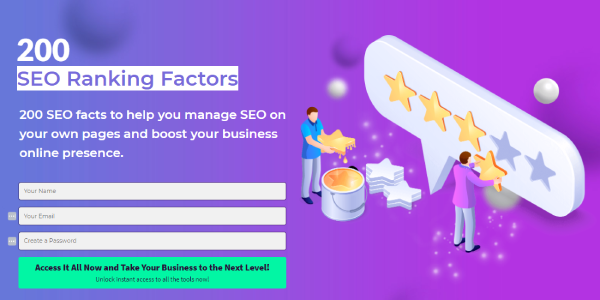
Let’s imagine you manage a balloon animal artist collective in Omaha, Nebraska. You notice your company’s growth is plateauing. You mostly serve a strange crop of repeat customers who throw a lot of parties and really like balloon animals, but they can only do so much for you.
You realize you need new business and decide a base of interested contacts would be a great place to start. In other words, you need to generate new leads, but you’re not sure what you’re supposed to do.
Your company isn’t some multinational balloon animal conglomerate — it’s just a collective that features three of the top ten most celebrated balloon animal artists in the greater Omaha area. And you only book customers in Douglas County (that’s where Omaha is — I just looked it up.)
If you’re trying to generate leads for your business, it doesn’t make sense to employ the same lead generation strategies as companies that operate on a global scale. Instead, you would do something called local lead generation.
Let’s get a picture of what that concept is and how to do it right.
What is Lead Generation?
Before understanding what local lead generation is, it might help to know what lead generation itself is. Lead generation is the process of attracting and converting a strangers and prospects into people who have indicated an interest in your company’s product or service. Some examples of lead generators are job applications, blog posts, coupons, live events, and online content.
There’s a wide variety of lead generation strategies available, including tactics specific to social media platforms and lead generation through paid-per-click (PPC) ads.
A solid lead generation strategy is an invaluable asset for a business of any shape or size. So that brings us to the point of this article — how can doctors, dentists, smaller law firms, contractors, construction companies, and any other business that operates regionally turn prospects into leads?
More bluntly, how can a local business construct and leverage an effective lead generation infrastructure?
How Local Businesses Can Find New Leads
So, since your emphasis is now on targeting local leads for your potential customer base, how can you get those leads? • Join Local Business Listings
Make sure that your online business is listed in different local online business listings. Examples of such online business listings are Yahoo Local and Google My Business. These online business listings are necessary for you to join, as potential customers are likely to search online for your products, your services, or even your company, and you business name needs to show up in the results that appear on the first page. The online business listing platforms mentioned let you complete a company profile, upload pictures and videos to display your business to leads. Your business name, address, phone numbers, email address, and other contact information should be constantly up to date and the same on all platforms, so that potential customers can easily get your details when they want to purchase a product or service from you. • Pay For Localized Advertising
Ads are always the way to go when trying to generate exposure for your business. Research even shows that ads that target specific localities are more effective than ads that amore generic, and not targeted at a specific audience. Targeting your ads to a specific locale is bound to get you more exposure with the local community. You can do this online by using Facebook Local Ads or even Google AdWords. Instagram and Twitter also provide options for sponsored ads, giving you the freedom to choose your target, keywords, and budget. • Getting Active On Social Media
Having an online presence wouldn’t be entirely effective if you don’t have your business on social media platforms. Social media is a great way to engage with customers and leads, and it is the highest lead generator on the Internet. For targeting local leads, look at the social media platforms that the locals are most active on. Facebook is always a sure bet, with Twitter and Instagram also inclusive. LinkedIn is mainly a B2B social media platform, but it is also a good idea to have a LinkedIn account so as to meet with other local businesses. Being on social media isn’t only about promoting your business, but also about connecting with customers at the individual level, providing them with relevant, interesting content to read and answering their questions. • Personalized Landing Pages For Your Websites
Your landing page is supposed to have all the information leads need to know what your business is all about. Your landing page should be made to suit the local audience, and not just a generic landing page for all audiences. This will be more receptive to the audience you want to reach. • Targeted Email Marketing Email marketing is also a great way to connect with leads and build your customer list. Keep your local customers up to date with what is happening in your business by sending them newsletters. You can also send them survey forms, catalogs, and promotional material to keep in touch with your customers and learn more about their preferences and opinions that could improve your business relations with them. • Search Engine Optimization and local Seo SEO is the way to go when you want people to find you and your website. Proper, localized SEO techniques will be able make your website appear at the top of search results when people search using certain keywords. Localizing your SEO simply means optimizing your website by associating it with commonly searched keywords that will lead people to find your website. If you own a bridal boutique in San Diego, for example, you could add a location label to keywords to lead people straight to you. So the keywords ‘bridal boutique’ could become ‘San Diego bridal boutique’, making search results more specific and your website or blog more noticeable. • Local Referrals
Referrals are important. Making your customers happy and keeping them satisfied will ensure that they refer other customers to you. If the local community is happy with your products or services, they will encourage others to do business with you, and this will generate leads for you and get you more loyal customers. Create a referral reward system on your website, to reward those customers that refer people to your e-commerce site. Ask your customers to get referrals for you after they have made a purchase, providing them with an incentive for doing so. Since they just bought something, they would be in a great mood to refer someone to you, and you can reward them with free coupons or special discounts on certain products or services. • Form Strategic Partnerships With Local Business owners
Establish relationships with local businesses that have products or services similar to yours or products and services that complement yours. With these partnerships you can refer customers to each other. You can send e-newsletters to their mailing list and vice versa, and you can promote your complementary products and services together.
• Maintain An Offline Presence In The Local Community Don’t just move your entire business online and ignore your offline marketing strategies. Having an offline presence in the local community is also important, as important as having an online presence. Host local events to showcase your brand, hold trade fairs, have a physical mailing list and deliver newsletters to your customers’ mail boxes. Sponsor events like school events or some holiday activities that will boost your company’s reputation. Your online and offline marketing strategies can actually complement each other, boosting your company’s image and lead flow.
Best Ways For Local Businesses To Generate More Customers
The strategies mentioned above are bound to get more customers for your local business. There are still more tips that you can follow to get more customers for your local business, such as: 1. Providing Solutions And Relevant Information On Your Blog Or Website
Many people are searching the web for answers to certain problems, and if they come to your site or blog, which contains educative and solution-driven content, there is a high chance of making them customers. 2. Don’t Just Attract Tons Of Traffic To Your Site
Make your website engaging enough that the visitors stay longer and get incentivized to take the decision you want them to take. In other words, make sure your site is optimized for conversions. 3. Always Follow Up On Your Leads
Whether you generate leads online or offline, through referrals or by social shares, always make sure that you follow up on them. Keep the conversations flowing; be open to answering their questions and accommodating their request. In time, those leads will become customers.
Local Lead Generation Software
1.HubSpot Marketing Hub
The HubSpot Marketing Hub’s suite of features can assist with your audience targeting efforts. It contains resources that provide real-time SEO suggestions to help you tailor a content strategy to your local audience.
It also enables more sophisticated and effective promotion over social media and other online marketing avenues. Businesses can also leverage the platform to design compelling calls to action and personalize messaging based on location, traffic source, buyer persona, and more.
Ultimately, The HubSpot Marketing Hub is an affordable option for local businesses looking to attract and garner interest from prospects. It provides the necessary resources for any local business to get a picture of who its customers are, how they’re interacting with its marketing efforts, and what it can do to translate prospects’ interest into legitimate leads.
2. Google Search Console
Google Search Console can be an invaluable asset to any local SEO strategy. The software brings data about where your content appears in Google’s search results to light and shows how often search visitors are interacting with your site when it appears on search result pages.
The console’s reports provide legitimate, quantifiable visibility into the impact of your content marketing, considering factors like clicks, impressions, and page rank. It also offers insight into keywords or phrases people are searching for when your site appears on the results page — a powerful resource for coming up with new content ideas based on the keywords your prospects are actually searching.
3. OptinMonster
OptinMonster is a conversion optimization toolkit that features resources to generate leads, gain subscribers, and ultimately provide sales opportunities from your site’s traffic.
It contains templates to create offers and a powerful targeting and segmentation engine — taken together, these tools can identify when to show the right visitors offers relevant to their interests. It also has analytics resources to measure the efficacy of your campaigns.
4. Google Ads
Google Ads can be one of the most mission-critical components of a local business’s SEM efforts. And the software’s HubSpot integration allows companies to identify and reach highly-targeted local audiences.
It can use any CRM data point to serve as a reference for targeted messages — an asset to local businesses looking to pinpoint who and where their potential customers’ interest is coming from.
It also lets small businesses set their own advertising budgets by offering insight into which ads are most effective — allowing local companies to keep careful tabs on the ROI of their paid ads.
5. Typeform
Typeform allows you to capture more leads with engaging interactive forms. The software features mobile-ready contact forms, surveys, quizzes, and more — all from premade or custom templates.
Its automatic tracking tools allow you to pinpoint where your most engaged audience is coming from — whether it be specific social media channels, your website’s home or contact page, or any other source that feeds leads to your business.
No matter the shape, size, or nature of your company, gaining exposure to interested prospects will always be in your best interest. Local businesses still need to grow, and new customers are central to that process. Companies with any sort of online presence should always be looking to generate new leads — no matter how far or wide their geographical reach extends.
Conclusions
Local lead generation is a targeted marketing activity that is necessary for your business to grow. Lead generation is a process that is becoming more and more relevant to businesses of all sizes because getting leads means getting even more customers. Leads are the lifeblood of any business, and to generate them you have to do a number of things, such as finding them, engaging them, and nurturing them into paying customers. With local lead generation, the goal is to attract the attention of the local community nearest to your business. It doesn’t matter what business you are in: leads are important. By targeting your local community you stand a chance of building a really firm, local customer base that will get your brand more exposure and enhance its good reputation.





